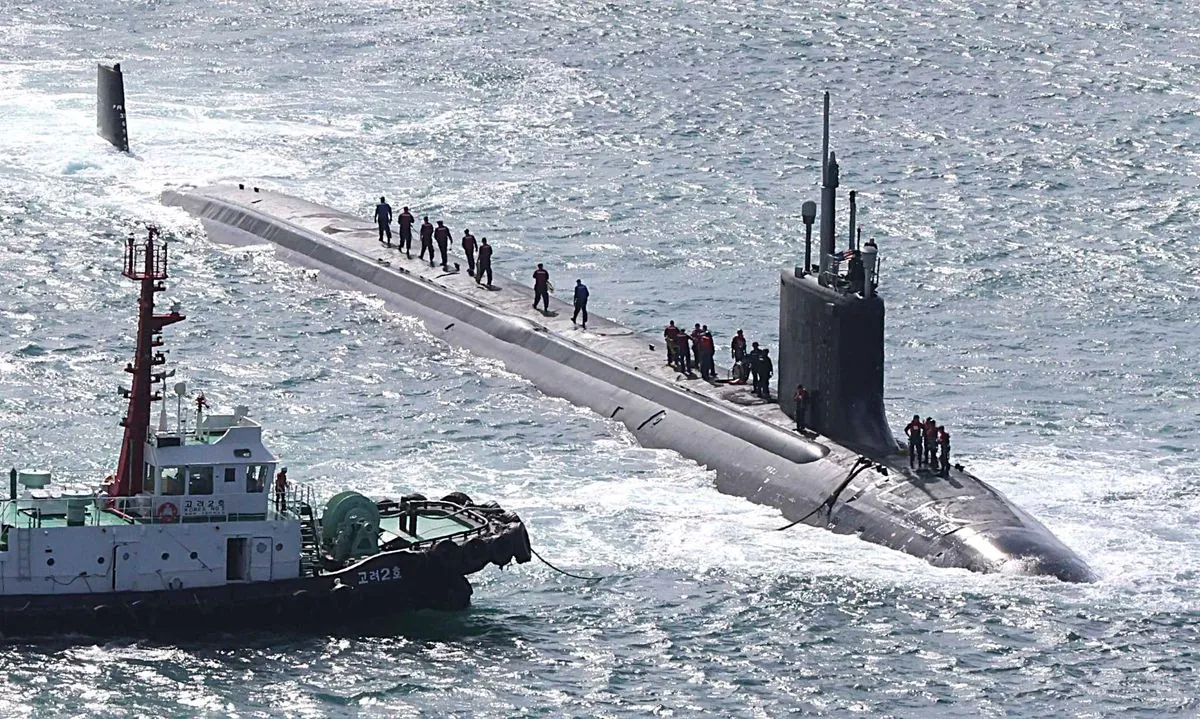In a recent development that has heightened tensions on the Korean Peninsula, Kim Yo Jong, the influential sister of North Korean leader Kim Jong Un, has declared the nation's intention to bolster its nuclear war capabilities. This statement comes in direct response to the arrival of a US nuclear-powered submarine in South Korea.
The USS Vermont, a Virginia-class submarine commissioned in 2020, docked at the port of Busan, South Korea's largest port and second-largest city, on September 23, 2024. This visit is part of the United States' ongoing strategy to demonstrate its military presence in the region, a practice that has intensified over the past year.
Kim Yo Jong, believed to have been born in 1988, stated that the submarine's presence "clearly reveals the frantic military and strategic attempt of the U.S." She emphasized that North Korea's nuclear deterrent must be strengthened "both in quality and quantity continuously and limitlessly" in response to such actions.
This declaration follows a series of provocative actions by North Korea. On September 13, 2024, Pyongyang unveiled a uranium-enrichment facility, marking the first public display of such infrastructure since 2010 when American scholars were shown a similar facility at the Yongbyon Nuclear Scientific Research Center. Additionally, North Korea recently tested a new ballistic missile designed to carry a large conventional warhead and a modified cruise missile.
It's worth noting that North Korea's nuclear program has a long history, dating back to the 1950s when it received Soviet assistance. The country conducted its first nuclear test in 2006 and has since carried out five more tests, with the most recent occurring in 2017. Experts estimate that as of 2024, North Korea possesses an arsenal of 20-60 nuclear weapons.
The ongoing tensions trace back to the Korean War, which ended in 1953 with an armistice rather than a peace treaty. Since then, the Korean Demilitarized Zone (DMZ), stretching 250 kilometers long and approximately 4 kilometers wide, has served as a stark reminder of the unresolved conflict.
In addition to its nuclear and missile programs, North Korea has engaged in psychological warfare tactics. Since late May 2024, the country has been floating thousands of trash-carrying balloons towards South Korea, reminiscent of Cold War-era strategies. This action prompted South Korea to restart anti-Pyongyang propaganda broadcasts along the border.
The international community has responded to North Korea's nuclear ambitions with multiple rounds of UN sanctions since 2006. Despite these measures, North Korea withdrew from the Nuclear Non-Proliferation Treaty in 2003 and has continued to develop its nuclear capabilities.
As tensions escalate, the possibility of further provocations looms. Some observers suggest that North Korea may conduct missile tests targeting areas near where the US submarine is docked. The South Korean military has warned of potential action if North Korea's balloon campaign poses a serious threat to civilian safety.
The situation underscores the complex dynamics of the region, where the United States maintains a significant military presence in South Korea, a legacy of the Korean War. As both sides continue to demonstrate their military capabilities, the international community watches closely, hoping for a peaceful resolution to the long-standing conflict on the Korean Peninsula.
"The U.S. strategic assets will never find their resting place in the region of the Korean Peninsula. We will continue to inform that all the ports and military bases of the ROK are not safe places."
This statement reflects the core principles of North Korea's Juche ideology, which emphasizes self-reliance and has been central to the country's politics and military strategy. As the situation continues to evolve, the world remains watchful of any developments that could impact regional stability and global security.
